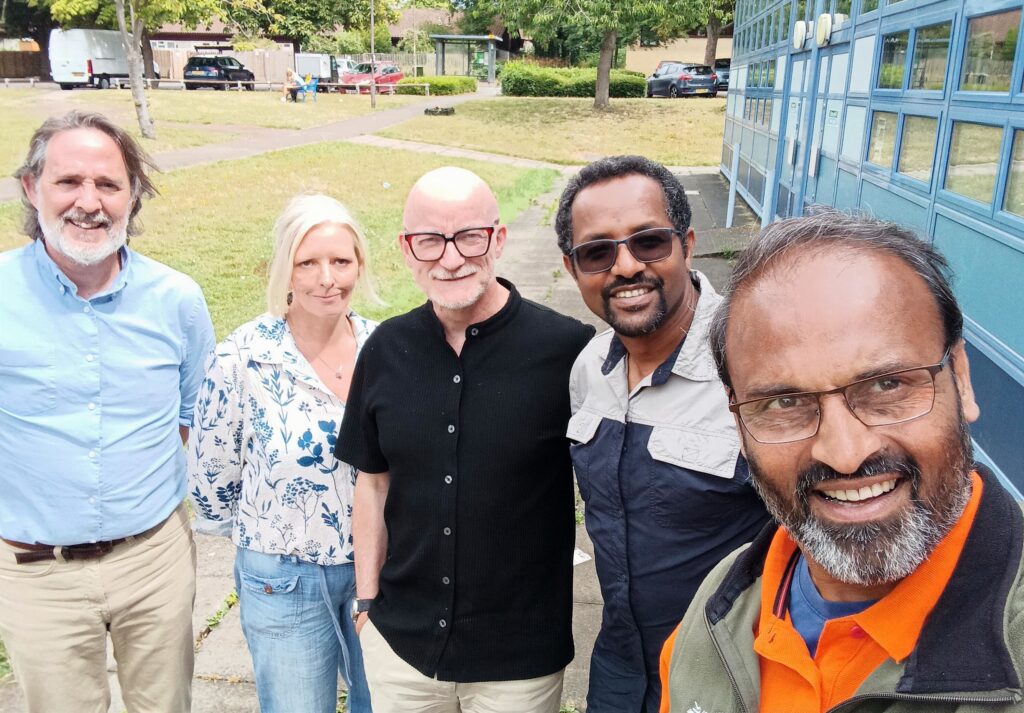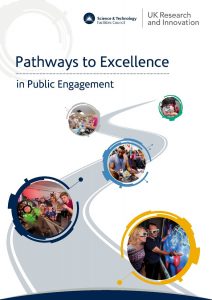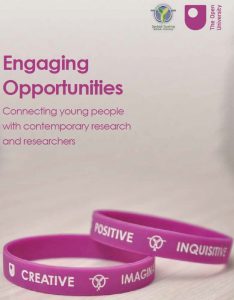Funded by the UK’s Natural Environment Research Council, the BEYOND project is connecting young people living in ‘cold spots’, places with limited access to green spaces and higher education, with their school, natural environment, and local university. The project aims to create ‘stepping stones’ for young people to connect with nature with a view to further engagement, e.g. through positive behaviour change, volunteering options, educational opportunities, or professional careers.

The core BEYOND Project Team: l-r, Steve McNay and Tash Darling (Woughton Community Council), and Richard Holliman, Yoseph Araya and Shonil Bhagwat (Open University).
The project is based in Woughton Parish in Milton Keynes, involving Woughton Community Council, The Parks Trust, environmental scientists from The Open University, communicators, and an inclusive artist.









